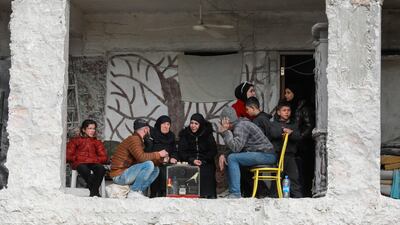The international community must rethink the way aid reaches Syria after political disagreements over humanitarian corridors and access slowed efforts to get assistance to north-west Syria after the devastating earthquake on February 6, humanitarian groups have said.
The UN has said at least 4,525 people in Syria died in the 7.8-magnitude earthquake and its aftershocks, but the true scale of the disaster is thought to be much higher.
Syrian rescue teams have had limited assistance and lack the heavy machinery required to dig through the rubble of thousands of buildings levelled by the disaster.
It took about a week for the first UN aid shipments to cross into rebel-held areas of Syria, raising concerns that some lives were lost because of the delay.
Peoplem in Syria are still calling for help.
“Upcoming international discussions – including the March 16 donors conference convened by the EU – should be leveraged to generate momentum for aggressive and co-ordinated leadership and engagement. Including the perspective of Syrians directly affected by the disaster is important,” a joint statement from the Munich Security Conference, the European Institute of Peace and the Rockefeller Foundation said.
Syria's north-western Idlib province, which was badly hit, hosts about a million displaced people but is controlled by militant groups, some of which have ties to Al Qaeda.
After disputes over aid corridors, the UN's humanitarian agencies can only use the crossing from Turkey at Bab al Hawa.
Damascus has said it must co-ordinate delivery to regime-held areas and rebel-held territory.
After the disaster, the US lifted sanctions temporarily for those assisting with the quake response but repeated that its previous measures did not affect aid deliveries.
Participants at the Munich conference said the earthquake and its effects were a wake-up call to how the global community responded to natural disasters.
“They [the international community] must catalyse a more coherent international response, both with regards to north-west Syria’s immediate needs and, over time, for unblocking the political challenges that have condemned the civilian population to insecurity and destitution,” the joint statement said.
The groups said the immediate focus must be on aid crossing borders. They called for all access points to be opened and to remain in use without time limits.
“In terms of crossings, the private sector and NGOs are not under the same constraints as the UN. The role of local actors and NGOs present on the ground must therefore be supported as a matter of urgency,” they said.
European Commissioner for Neighbourhood and Enlargement Oliver Varhelyi, who is visiting Ankara to prepare for an international donor’s conference, scheduled for March in Brussels, said the damage caused by the earthquake required a reconstruction operation at a scale “never seen before”.
The conference aims to raise funds from the international community to support Turkey and Syria.
The latest appeal comes as the World Health Organisation said on Wednesday that it was taking advantage of a pause in sanctions to move health supplies and equipment into Syria.
"We have already started ordering equipment and supplies, and we are working with UN partners on a collective approach to take advantage of the pause," said Rick Brennan, regional emergency director of the WHO Eastern Mediterranean Region.
The agency has re-established its distribution channels within Syria and has moved more than 139 tonnes of medical supplies including antibiotics and surgical supplies to affected areas, said Catherine Smallwood, the WHO's senior emergency officer for Europe.
WHO chief Dr Tedros Adhanom Ghebreyesus called all on sides to use the earthquake as a reason to end the conflict in Syria.
"Warring parties now should use this earthquake as an opportunity to talk to each other and bring a political solution," he said.
"The Syrians actually believe that the earthquake is a lesser evil. It's another evil but a lesser evil compared to the 12 years of conflict, but not only that — the displacement, the economic meltdown.
"Anybody can see through what kind of hell the Syrian people are passing."
He said seven hospitals and 145 health centres in Syria were damaged in the quake, many of them in the north-west.














